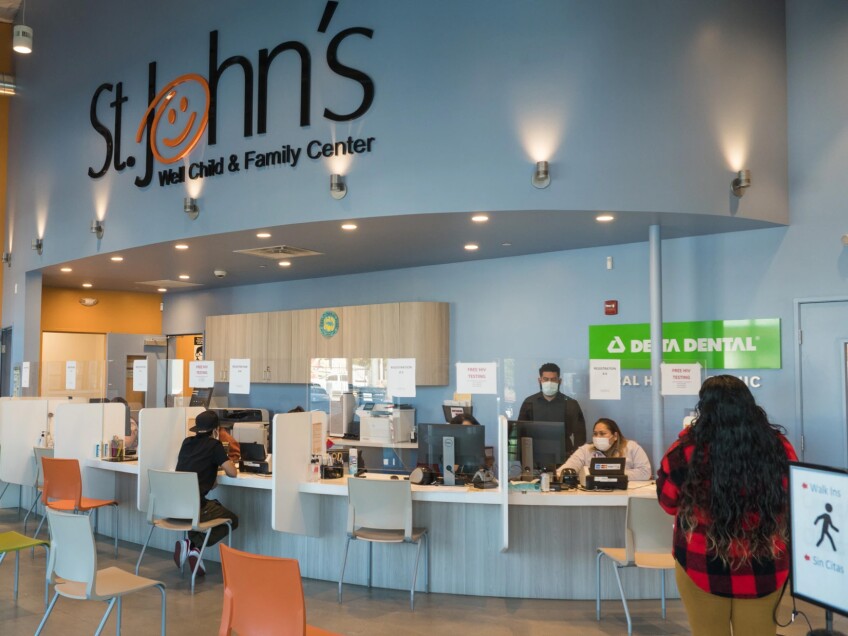Immigration Sweeps and Health Data Sharing are Pushing Some Local Immigrant Families Out of Medi-Cal

This article was originally published July 9, 2025 on laist.com.
Healthcare providers across Southern California say some undocumented and mixed-status families are abandoning the public health system and much needed care, citing reports that Medi-Cal data was shared with federal agents to assist recent immigration enforcement sweeps.
The Trump administration’s alleged data sharing is also at the center of a lawsuit filed by California Attorney General Rob Bonta and 19 other states. Bonta said in a statement that the White House has “upended longstanding privacy protections” by sharing sensitive health information with ICE.
"In doing so, it has created a culture of fear that will lead to fewer people seeking vital emergency medical care," he added.
What are local health officials seeing?
Healthcare providers said that although they couldn't give specific numbers, anecdotally, the drop off has been noticeable.
Georgina Maldonado, executive director of the Community Health Initiative of Orange County, said patients trust their medical care providers with private information like documentation status, family size and income.
“Our community is feeling violated,” Maldonado said. “We give so much. We want to work. We want that opportunity, and here we are. Our information has been shared.”
Linda Nguy, associate director of policy advocacy at Western Center on Law and Poverty, also questions the legality of the data sharing.
“The data we believe is only for the purposes of administering the Medicaid program, and the Department of Homeland Security has no place in the administration of Medicaid, Medi-Cal benefits, and so should not have should not have that data,” Nguy said.
What’s the potential fallout?
The consequences could mean patients look to emergency rooms for primary care, which can be more costly for taxpayers.
“As healthcare providers are impacted and they start to see a rise in uncompensated care, those healthcare providers are going to have to shift the cost of providing care to commercially insured populations,” said Martha Santana-Chin, CEO of the L.A. Care Health Plan. “Individuals that are covered by employer sponsored coverage will likely see an increase in their premiums as a result of that cost shift.”
Some hospitals and clinics are also seeing a significant drop-off in healthcare visits since immigration agents descended across the region, according to the L.A. County Board of Supervisors this week.
St. John's clinics in Los Angeles and the Inland Empire have seen cancellations and appointment absences increase to 30% since June 6. Los Angeles General Medical Center's no-show and cancellation rates have doubled to around 20%.
“Clinics and sites that are usually busting at the seams with moms, kids, individuals with disabilities, working adults — the list goes on — are now empty,” Santana-Chin said.
Federal and state budgets add to the uneasiness
The federal government’s budget plan that largely scales back on healthcare could also destabilize the system of care that low-income communities depend on, Santana-Chin said.
It’s still unclear how the cuts or changes to Medicaid could affect Californians who rely on the state’s program, which is called Medi-Cal. Some experts have said that the rollback in money could lead to more people losing coverage or lock people out of insurance because of their immigration status.
“I think this is targeting immigrant families and at a time when the federal government has been quite aggressive and there's a lot of fear already in the immigrant community," Nguy said. "I don't think (this) aligns with California values."
What’s next?
The L.A. County Board of Supervisors this week asked county agencies for more information on how immigration sweeps have affected access to healthcare and to look into creating more virtual options for patients.
Staff have the next 30 days to report to the board.
Maldonado said now is the time for the community to support one another.
“It may be out of our control, but they know that we are there for them,” Maldonado said. “We are there for each other.”

